[vc_row][vc_column][vc_column_text]It’s time for our annual Trout Spey Gear Roundup as “Swing Season” approaches. A month from today we will be getting after it pretty hard (some of us are now), and in two months we wont be doing much else.
We like to think we have a pretty darn good selection of Ultra-light Spey gear, and because we’ve been very involved in the category for years, we also think our knowledge and experience are pretty darn solid.
So, here is a rundown of the gear we will be using and recommending for the 2019-20 Swing Season.[/vc_column_text][us_separator size=”small” show_line=”1″][us_image image=”34540″][us_separator][vc_column_text]
ULTRA-LIGHT TROUT SPEY RODS
When we talk about “Trout” Spey rods, we’re talking about 4 weight and under Spey rods that throw lines approximately 350 grains or less. We’re not saying that you can’t use a 5 weight for Trout fishing. Heck, we know Anglers who throw 6 and even 8 weights. And we did before all this great ultra-light gear was available! But in our opinion, the rods in this range are the most suited to trout fishing, and the rods above this mark become big Trout/Steelhead crossover rods. And if a manufacturer isn’t building rods in the 2-4 weight range, they’re not really getting in the game.
Having said that, many of these rods live in a series that extends upwards into heavier line weights. If that’s what your looking for, those heavier models generally generate the same feedback as their ultra-light counterparts.
So, here’s the rack we’ll be using for the next year…[/vc_column_text][vc_column_text]
Sage Trout Spey HD
10’9” #1 | 10’9” #2 | 10’3” #3 | 11’ #3 | 11’3” #4 $900
The new Sage Trout Spey HD replaces the Sage ONE, and bring a change in action and several new sizes. The biggest news with this rod is the addition of a 1 weight model, for those looking for that ultra, ultra-light Spey rod for swinging soft hackles and very small streamers. They’ve also added an additional 3 weight model, basically a short and a long. We like this approach, and we find that when offered two lengths in the same rod, anglers split 50/50 on which they like. Mike McCune has been throwing this rod all summer and really likes it. Like the ONE before it, you won’t complain about the action. It’s superb.[/vc_column_text]
G Loomis IMX Shortspey
11’11” #3 | 11’11” #4 | also 11’11” #5,#6,#7 $575
One of the most popular – and certainly the most powerful – Trout Spey models we carry, the G Loomis Shortspey is the longest series in the bunch. All rods are 11’11”, and that extra length brings a little more distance and power. Your reach and mending are also improved. If you like to fish big streamers on Skagit heads with deep tips, it’s hard to argue with this rod. Unfortunately there is no 2 weight in this series, so the IMX Shortspey isn’t real popular with the summer soft-hackle crowd. The 3 weight is an excellent all around rod, and the #4 brings some pretty serious power that will easily throw big Galloup flies. I wouldn’t hesitate to use the 4 weight as a Grande Ronde Steelhead rod either.
We also carry the 5-7 weights, as this has become our default Steelhead rod for customers looking for their first anadromous fish outfit. It’s awesome for both summer and winter Steelhead applications.[/vc_column_text]
ACR Nova 2
10’8” #2 | 11’ #3 | 11’3” #4 $495
The Anderson Custom Rods (ACR) Nova series has been one of our top selling models, and last spring Gary Anderson started filtering the new Nova 2 models. This fall the transition will be complete, with the addition of the super popular 2 weight. Last Spring, the new Nova 2 #3 and #4 weights got even higher marks than the original Nova series, and we expect these to continue to be top sellers on the Missouri. The rods are beautiful, with excellent components and finish. More importantly, they are very lightweight rods designed with a proper “Spey” action. Basically, you’re getting and excellent rod with top shelf fit and finish for a great price. ACR Rods have also proven to be tough, and we’ve sent back very few (if any?).[/vc_column_text]
Echo Trout Spey
11’ #2 | 11’ #3 | 11’ #4 $499
The new Echo Trout Spey was released last winter, and we only brought in the 2 weight, primarily because we have a big demand for 2 weights, and there are not many options. This fall we’ve been playing around with it more, and have the 3 and 4 weight models as well. These are really nice, snappy and lightweight Spey rods. They have a pretty quick action and are perfect Scandi/soft hackle Rods. I like the “cigar” style grip, which makes a two-hander feel smaller and lighter. Anglers with smaller hands will also appreciate it. The Echo Trout Spey will also do a great job of protecting lighter tippets, an increasingly important characteristic as more and more anglers are swinging little soft hackles.[/vc_column_text]
Orvis Clearwater Trout Spey
11’4” #3 $398
Orvis only builds one rod suited towards Trout fishing in their price-point Clearwater series Spey rods. But it’s a pretty good one, and is a specially well suited to anglers looking for a rod to throw small soft-hackles and streamers with the same rod. I wouldn’t use it for heavy sink-tips and tandem streamers, but for small and medium sized buggers it’s perfect. If you’re just getting into Trout Spey, plan on fishing smaller flies and smaller water, are an Orvis fan, this rod is definitely worth a look. Also, we’ve found the Clearwater series to be very durable. We also appreciate the new paint job.[/vc_column_text]
Echo TR
11’ #3 | 11’3” #4 $379.99
We’ve probably sold more Echo TR’s than any other ultra-light Spey rod. It’s an excellent rod that still is one of our most popular. The action is the perfect combination for both Scandi and Skagit techniques. Fast enough to rocket a quicker touch-and-go cast, but it retains that deep loading latent energy that slower paced Skagit techniques like. The design is a few years old, but it’s still the best first rod for someone new to Trout Spey, and you may never outgrow it.[/vc_column_text]
Redington Hydrogen Trout Spey
11’ #2 | 11’3” #3 | 11’6” #4 $349.99
The Redington Hydrogen is a solid first rod, and is one of the lowest cost entry points into Spey. It’s also the least expensive 2 weight we’re aware of. The action is fine, in the middle and neither exceptional or terrible. It is light in the hand for the price point, but that’s not always good when looking for a true Spey action. The build quality is OK, and you’ll have to like the bass rod style “no barrel” reel seat. But, most folks will be happy with the Hydrogen for a first rod, and those looking for that 2 weight (usually a second rod) at an easy to swallow price won’t find a less expensive option.[/vc_column_text]
ULTRA-LIGHT TROUT SPEY LINES
In a few short years, we’ve gone from almost no “real” Trout Spey lines, to more than we need. And that’s a good thing! And you have all of the choices you’re big brothers who fish for Steelhead have. You can get a variety of Scandi and Skagit heads in both shooting head and integrated line configurations. And there’s still some excellent oddball lines like the Wulff Ambush, arguably the first line in this category.
Single handed anglers continue to adopt both the lines and the casting strokes we use with two-handed rods to their “regular” fly rods, and we think that’s great. All you have to do is buy a line and learn a few casting principles and you’re Spey casting and fishing. The rod is not a requirement, but the following lines arguably are.[/vc_column_text][vc_column_text]
Scientific Anglers Spey Lite
- Scandi Head $55.00
- Scandi Integrated $89.95
- Skagit Head $49.95
- Skagit Integrated $89.95
Scientific Anglers Spey Lite series are the most popular Trout Spey lines in our shop, and likely in the industry. They have a line for every purpose, and they cast superbly. From a pure enjoyment standpoint, most of our customers enjoy swinging a run with a floating Spey Lite Scandi Line. It has plenty of horsepower, throws for distance and has enough turnover throw a decent sized bug.
The Skagit version is excellent as well, with enough taper to throw smooth loops and that Skagit oomph! That pushes big sink tips and articulated streamers.
The big question with either the Scandi or the Skagit is “Head” or “Integrated”? The Spey Lite series comes in both, and there are advantages to either. The genius of the Integrated is that Scientific Anglers incorporated a dark gray transition zone with heavy texture into their integrated lines. This means when you can’t see that transition zone, you can hear and feel it. This is brilliant in low light conditions, and everyone who tries it for the first time falls in love with this feature.
But the heads are excellent as well, especially when combined with the new Scientific Anglers Absolute Shooting Line. Either way, the Spey Lite series is an excellent group of lines that are propelling trout Spey fishing forward.[/vc_column_text]
OPST Commando
- Commando Skagit Head $54.95
- Commando Skagit Smooth (Integrated) $94.95
OPST (Olympic Peninsula Skagit Tactics) brought us the first Skagit heads designed for short rods (including single handers) and built in ultra-light weights. They are incredibly popular and it’s hard to argue that they aren’t the best Skagit heads For Trout Spey applications. Designed by Skagit guru Ed Ward, they have a uniques taper and the recommended grain weights are a little lighter than the rest. Recently, OPST introduced the Commando “Smooth”, which is an integrated version. The Commando Smooth utilizes a very skinny, coated shooting line that is mono-like in its behavior. Slick, fast shooting stuff that gets great feedback. If you need a Skagit tips, but prefer faster Scandi style casting, we highly recommend the Commando and to stick to Ed’s lighter line recommendations.[/vc_column_text]
RIO Intouch Troutspey
- Intouch Troutspey Head $49.99
- Intouch Troutspey Skagit Head $49.99
- Intouch Troutspey $99.99
- Intouch Troutspey Head $99.99
Last year RIO introduces their new Troutspey series. Comprised of both Skagit and Scandi heads and integrated lines, they cover all of the ultra-light Spey bases. We haven’t received as much customer feedback as we would like, and most has been centered around the Troutspey (Scandi) model. Generally, this line is lighter and more delicate than the SA Spey Lite Scandi (see above), and has been most popular as a soft hackle line. It performs true Scandi/touch & Go casts very well, but lacks the versatility of the SA, which allows a slower more deliberate stroke and throws with more power. The Skagit version does the job as expected.[/vc_column_text]
Wulff Ambush
- Ambush $89.95
- Ambush Short $89.95
The Wulff Ambush series are the original short-Head, Short-rod, spey Lines. Originally developed for single hand Spey casting, the Ambush is an integrated line that has a short and powerful front taper that blurs the line between Skagit and Scandi. You can use the line without a tip, but you can also all a sinking leader or even a Skagit tip. Recently, Wulff introduced the Ambush Short with head length in the 14’-15’ zone, vs the 18’- 20’ length of the regular Ambush. These lines are used for all kinds of single and two-Handed applications. We commonly sell them to anglers looking for a do everything line that they can Nymph and swing with. Think South Fork of the Clearwater or Great Lakes Steelhead.[/vc_column_text]
Airflo Skagit Scout
- Skagit Scout $59.99
The Airflo Skagit Scout is a classic, powerful Skagit head built in the tradition of classic Steelhead lines. If you like a relaxed stroke, commonly fish heavy sink tips (including tips longer than 10’), and typically throw big, articulated “Galloup” style flies, this line comes highly recommended. The Scout is also a great match on longer more powerful rods like the Loomis Shortspey, as well as heavier 5 and 6 weights.[/vc_column_text]
SKAGIT TIPS AND POLY LEADERS
If you’re part fo the Skagit crowd, you’ll definitely be needing Tips for your rig. I continue to be amazed at how many anglers I run into that are fishing a Skagit head with no tip on it! You MUST PUT A TIP on a Skagit line. Generally speaking, these tips are built just like a regular flynline, and are around 10 feet. They come in various sink rates. You can also built your own. On very light Skagit heads you can use a Poly Leader (see below), but I would only do this on heads under 200grains.
I still use “Poly Leaders” (Airflo) as the generic term, but some use “Versi-leader” (Rio) or “Sonar Leader” (SA) or “Siking Leaders”. Whatever you want to call them, these nylon core coated and tapered leaders are commonly used with Scandi lines to both lengthen the head and achieve some depth.
While they make some very fast sinking poly leaders, they can turn a smooth casting Scandi line into a clunky mess, especially in lighter grain weights. So we typically are using intermediate to type 3 leaders at the most. If you need to go deeper on a regular basis, you should probably be using a Skagit system.
In the fall, I almost always have an intermediate poly leader on my Scandi outfits.
[/vc_column_text][vc_column_text]
Scientific Anglers Sonar Leaders
These are what I use on a daily basis in the fall, They are a bit different than the other sinking leaders on the market, being quite a bit stiffer with an almost rough texture to them. The coating extends all the way to the tip (others have a short piece of mono revealed at the end) and you can easily throw a perfection loop in it. The added stiffness throws better loops in my opinion. SA also has a “hover” model as well as an internmediate, which is an excellent choice for soft hackles just under the surface.[/vc_column_text]
RIO VersiLeader
Rio builds their VersiLeader in several different models, and while a couple of them are designated as “spey” leaders, all of them will work (and they work great as emergency sink tips on single handers as well). These are the most popular poly leaders on the market, and are available in every sink rate imaginable and several lengths from 6’-12’.[/vc_column_text]
RIO MOW, iMOW and 3D MOW Tips
The most popular Skagit tips on the market, RIO’s “MOW” (McCune, O’Donnel, Ward) come in a wide variety of configurations. There is a MOW tip that will get you fly from the surface to gagging bass on the bottom, to everywhere in between. The most common in our shop are the Light iMOW versions which have a base of intermediate line, and T8 sinking line on the front. As of this post, we haven’t had a chance to throw the new 3D MOW tips. Built on a triple density design, the appear to be similar to the SA TC tips, which we like. MOW tips are 10’ in length. We generally stock the full range of “Light” versions for trout fishing, and a smaller assortment of “Medium” tips for heavier rods.[/vc_column_text]
Scientific Anglers TC Tips
Scientific Anglers TC (Third Coast) Skagit Tips are another great option for Skagit lines. The lightest 80gr tips are what we use for trout, and they are 8’ in length instead of the typical 10’ (which you may or may not like. I like it). TC Tips are double density, with a slower sink rate on the rear, and a faster sink rate on the front. We find the INT/S2 is a great autum sink rate. The only thing we don’t like is the floating model, which is a ridiculously bright green/white combo that is not apparent which is the front and which is the back. But, as we rarely use floating tips on our Skagit heads, its not much of an issue.[/vc_column_text]
HEAD AND TIP WALLETS
Head and Tip Wallets seem like a luxury, but they’re always in demand around the shop, and it seems like no matter how many we order, were out. We carry two excellent versions, one from RIO and the other by OPST. The OPST version is an expandable accordion style with a Velcro cover that arguable can carry more. The RIO models are zip open wallets, and are sleeker and easier to get in and out of smaller packs and pockets.
The larger Head wallets are great if you own lots of heads and have a few larger and longer heads for Steelhead fishing. If you’re mainly a trout guy and only have a couple of heads, you can likely get both heads and tips in the small “tip” wallets.
I don’t use the RIO Leader Wallet, I put my Poly Leaders in a tips wallet. But some folks like to remove the card from the packaging and keep it with the leader. The Leader Wallet has internal zip loc bags and is perfect for this.[/vc_column_text]
WHAT ELSE DO YOU NEED?
Waders, Boots & SOLES
Well, first off, you’ll want a pair of waders. That’s obvious. Which means wading boots, which means a decision needs top be made about soles.
We have touted the “rubber” soles for the Missouri RIver forever. And that’s what I use. But when I’m out on a serious day of Trout Spey fishing or guiding, I’ll likely choose a little more sole. Either felt or aluminum bars or studs. Whatever you like. And while the Missouri is easy wading, I find my self getting into way more difficult situations when I’m swinging a two-hander than when I’m fishing a dry fly. Especially in the Canyon.
I think felt will suffice for most anglers on the Missouri. If you fish a lot between Mountain Palace and Pelican, you should consider cleats or bars. Depends on your fitness, age/balance and how much you care about getting wet. If you fish a lot during the clod winter months (like we do), rubber soles with cleats or bars are best, as they dont accumulate ice and snow like felt does.[/vc_column_text][vc_column_text]
Packs and Vests
Boat fishing is so popular in Montana, that many anglers dont own a serious vest or pack. They don’t need one. But you will for Spey fishing. You’ll be on your feet all day, and you’ll need to carry flies, head and tip wallet, leader material and tools at the least. Add to that a camera, rain jacket, gloves and beanie, and you’ll need a decent sized bag.
You will not want a vest or chest pack. The tend to be “catchy” when you’re shooting line, and can physically get in the way of proper hand placement. Fortunately, slings and waist bags are all the rage, and that’s what most people use. Simms, Fishpond, Orvis, Upmqua Feather Merchants and Patagonia all produce slings and waist packs that work great. These bags are generally worn behind you while fishing, then rotated to your front when you need to access the contents.
Most build both a “submersible” version – that uses the notorious T-Zip – and a “water resistant” version with regular zippers. Submersible packs are great if you carry camera gear or other expensive electronics. But they are kind of a pain to get in and out of. Submersible packs tend to have little organization, so if you’re a guy who loves tons of pockets you’ll not find what your looking for. Umpqua is known for its waterproof packs with a roll-top closure like a dry bag, another option.
“Water Resistant” packs are lighter and far easier to access. They usually have far more organization both inside and outside. Fishpond even makes models designed specifically to carry a large frame revolver in bear country.
I am currently using a waist pack with a shoulder strap, and I commonly wade to or above the pack, so I chose the submersible version. If I was using a shoulder sling back, I would probably go for the “water resistant” version that’s easier to access and has more storage.
And don’t forget nets. Its really nice to carry a long “float tube” sized net while spey fishing. Fishpond has net holder on many models, and Umpqua had added net holders to some of their packs for this fall. Net holders are not ways obvious, so make sure and ask if the model you’re looking at has one.
I dont include links to these products, because I feel that packs and vests are a very personal choice, and you really need to go down to your local fly shop and see the features, try it on, etc. We have customer bring their gear in the shop and make sure that it all fits like they want.
[/vc_column_text][/vc_column][/vc_row]
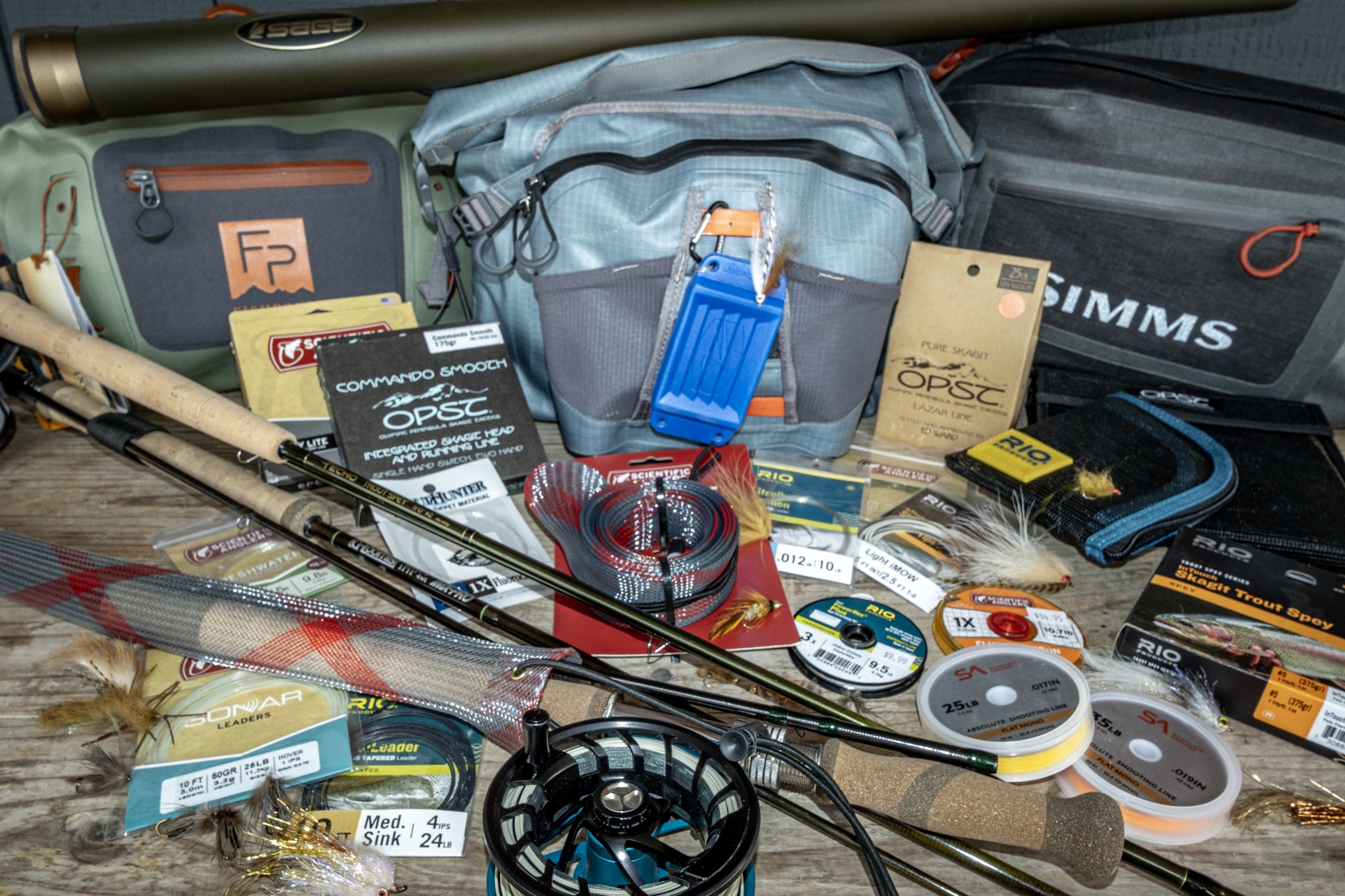
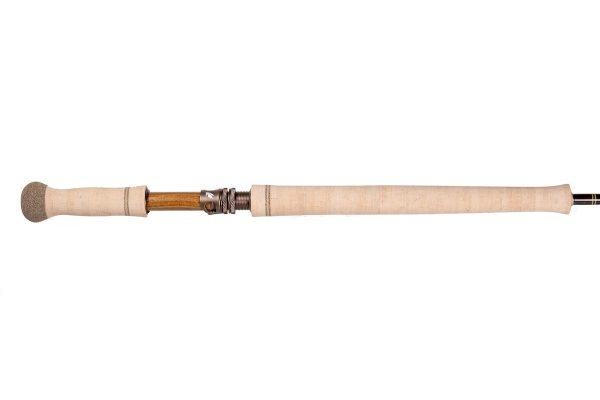
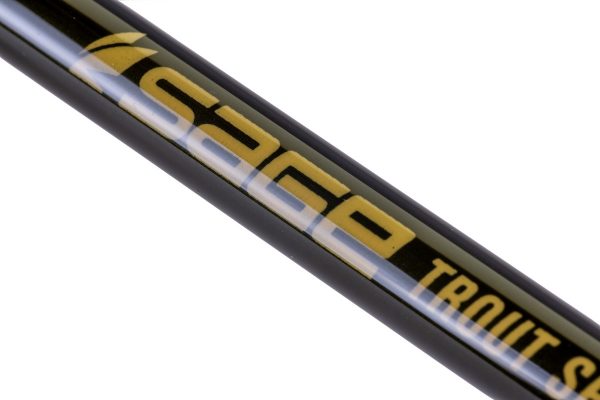
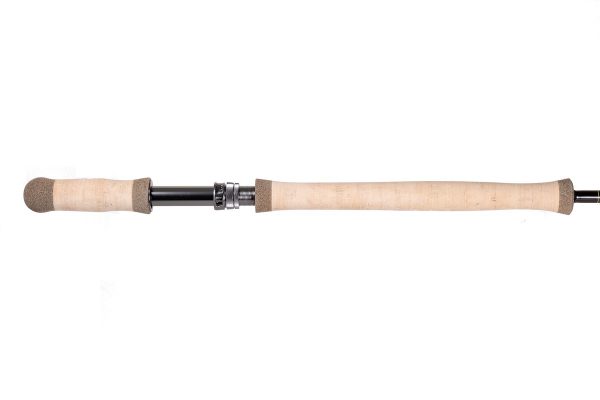
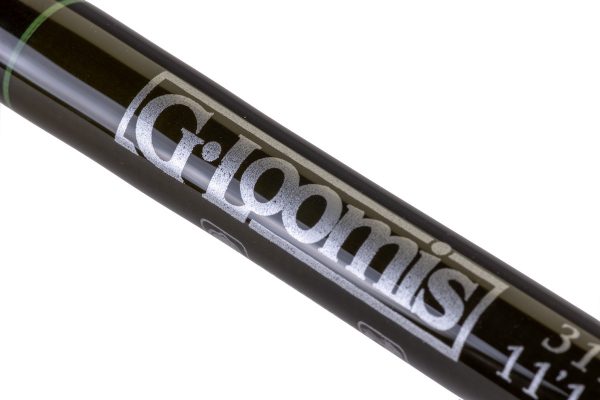
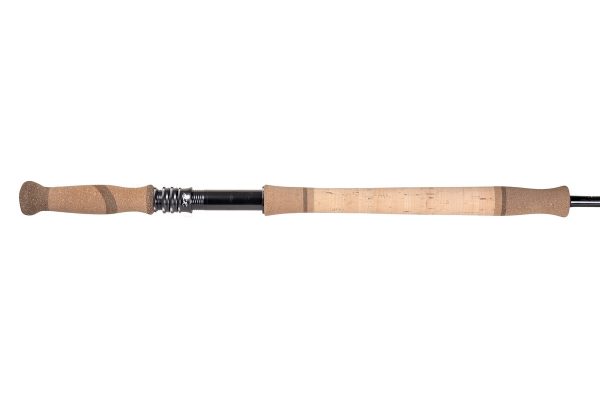
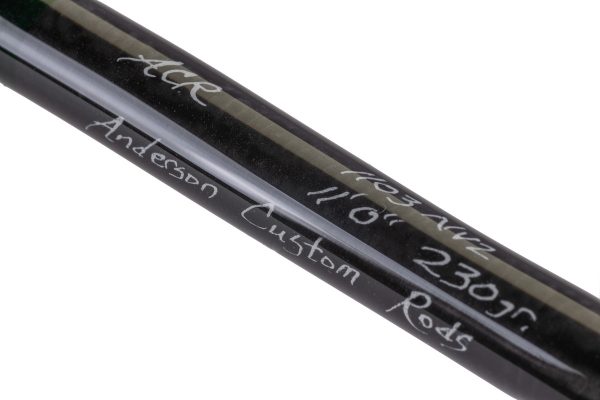
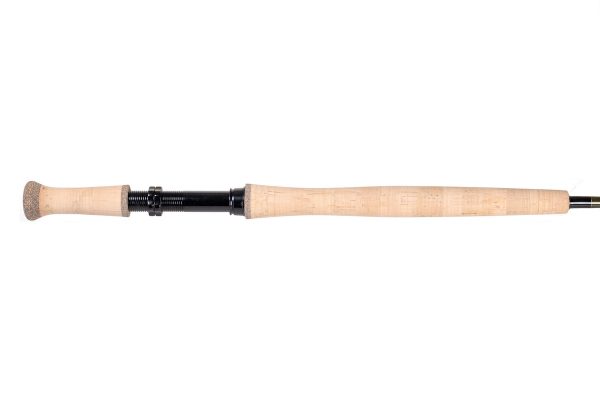
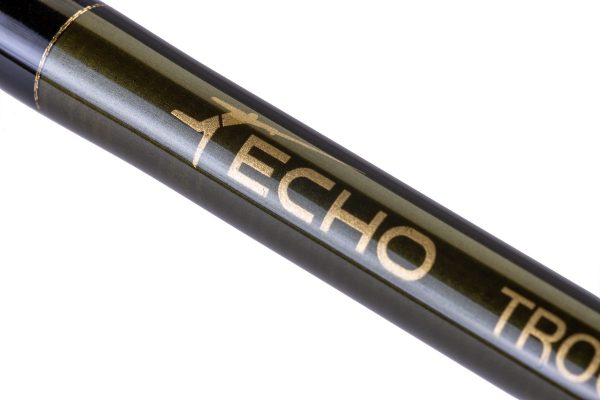
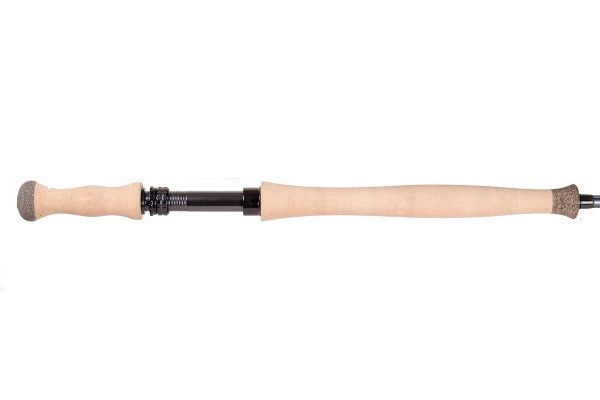
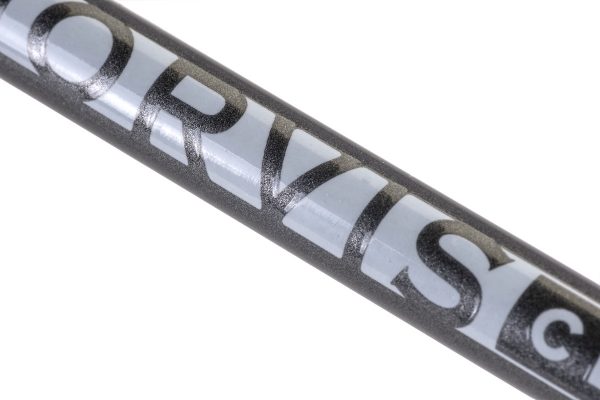
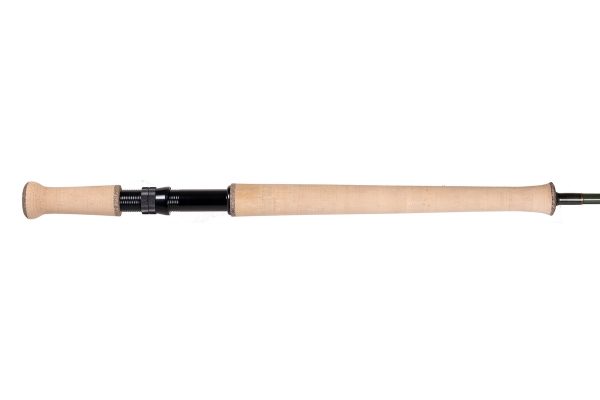
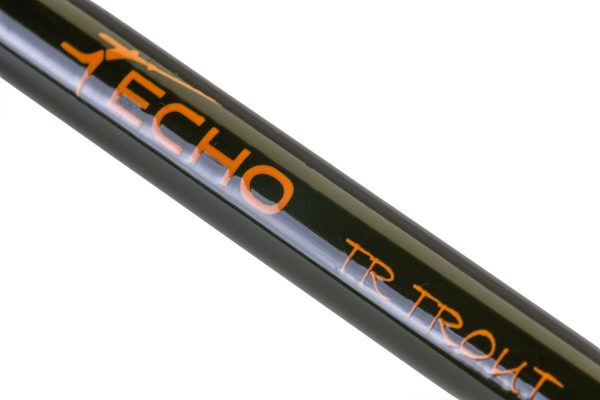
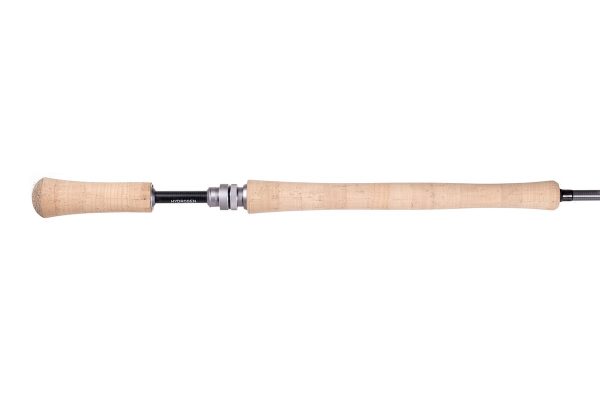
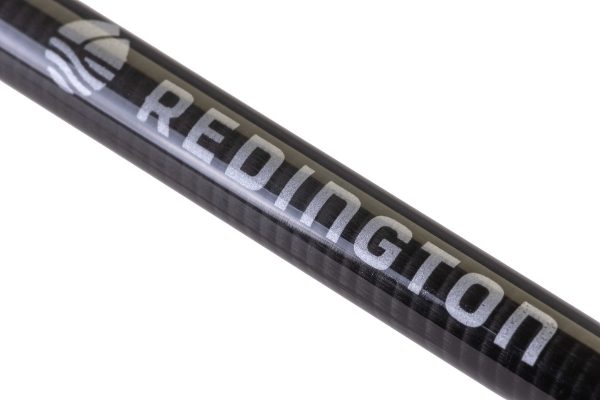
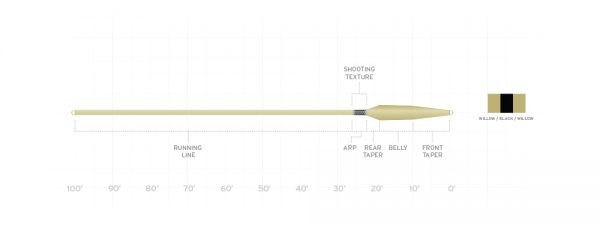
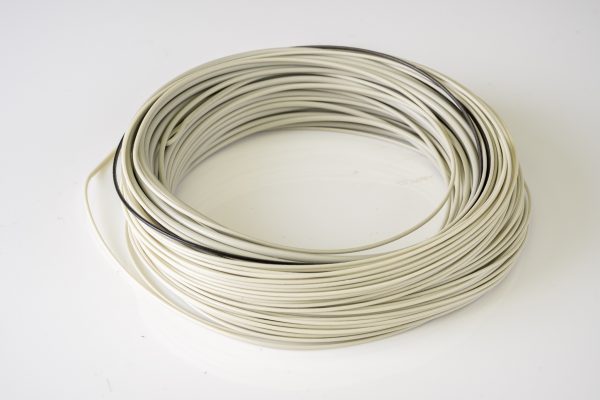
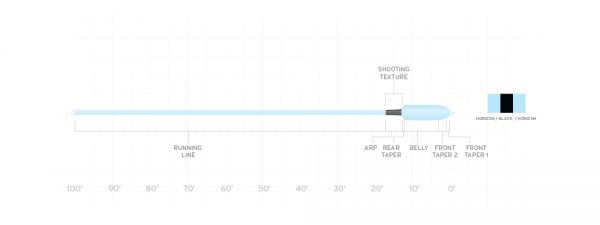
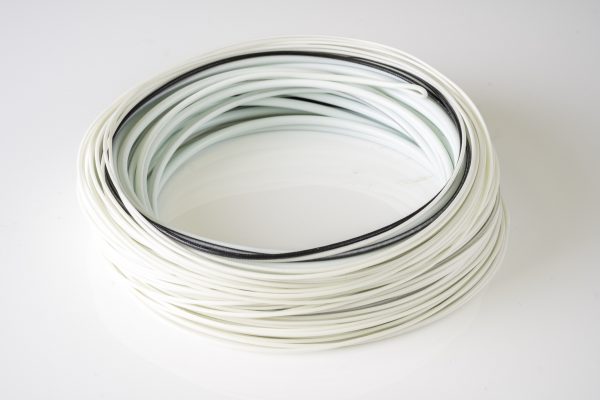

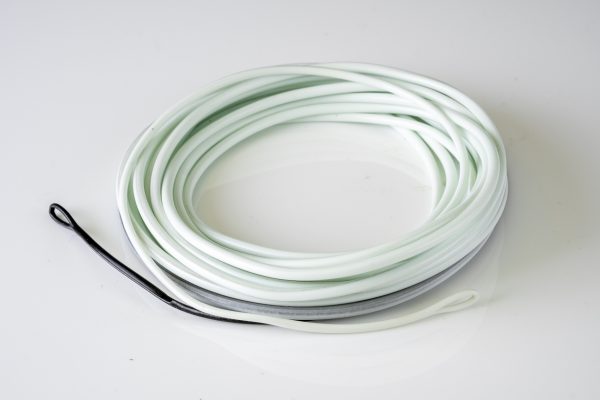
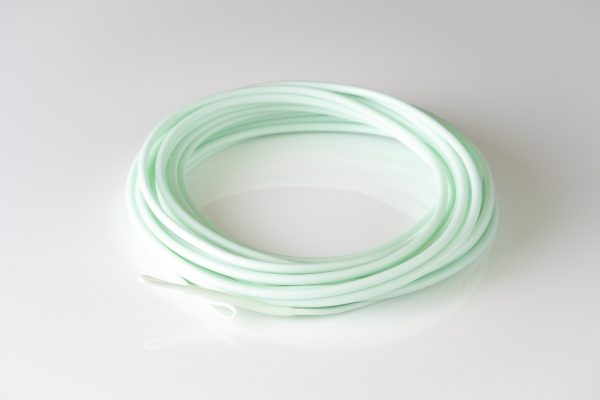
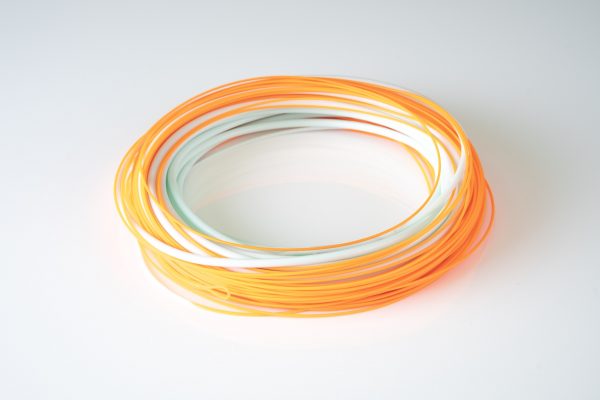
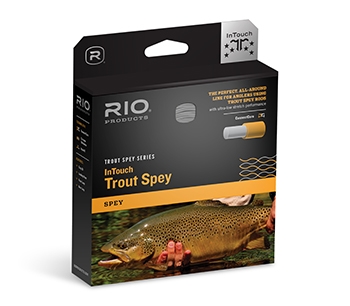
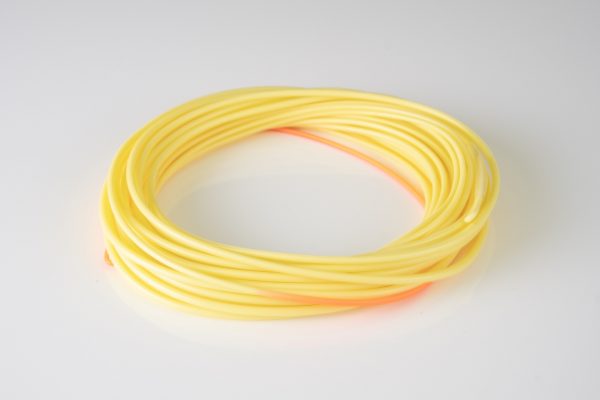
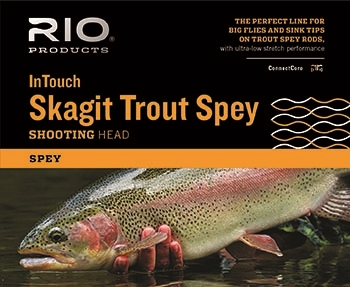
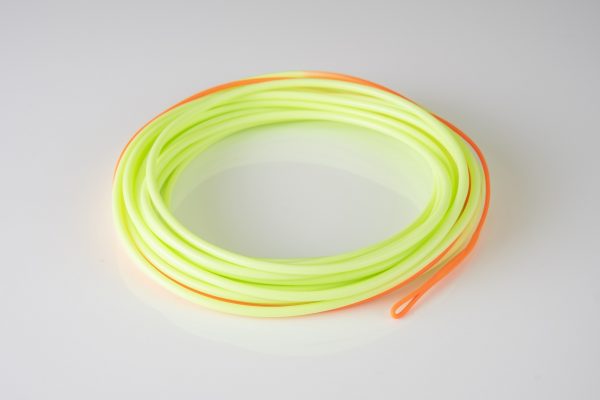
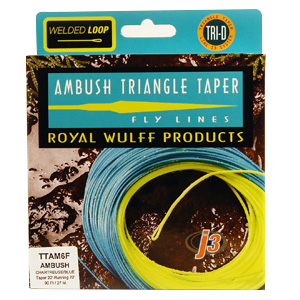
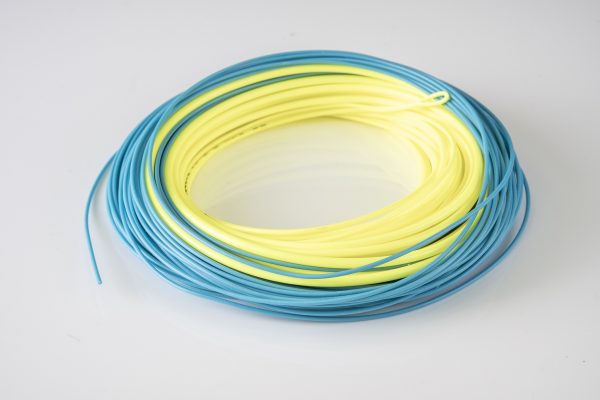
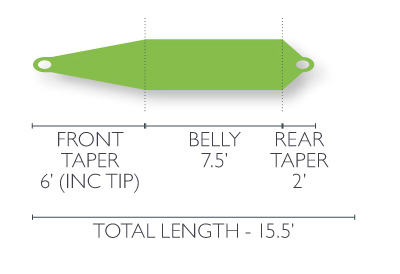
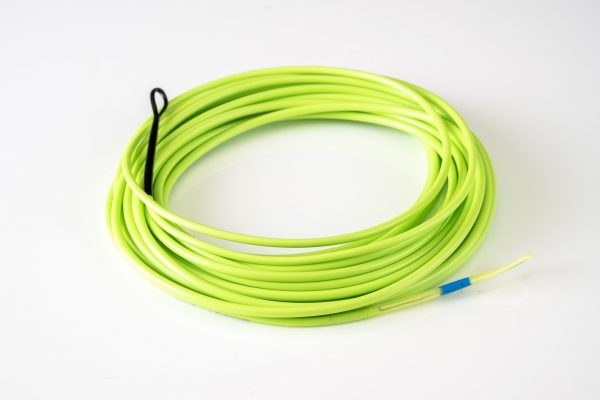
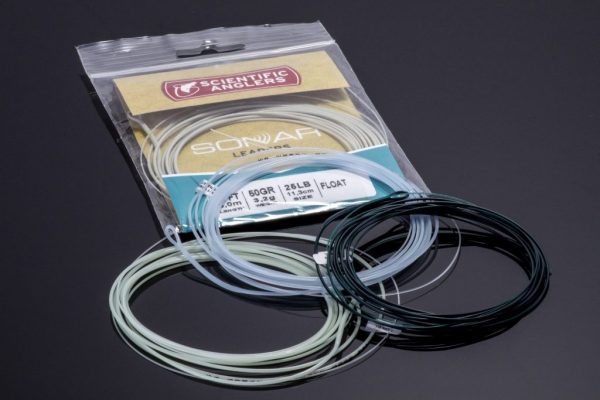
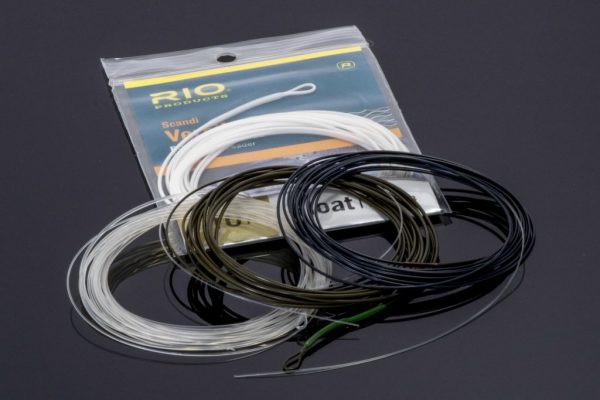
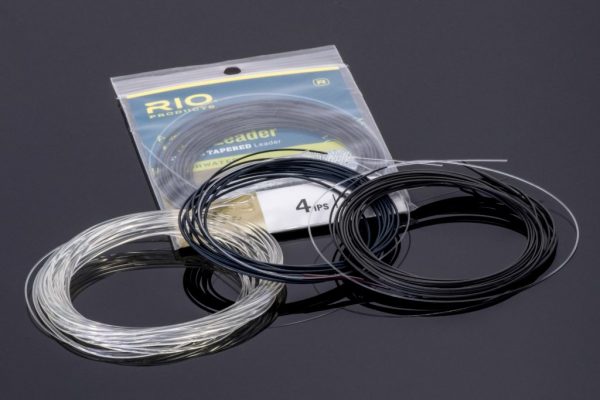
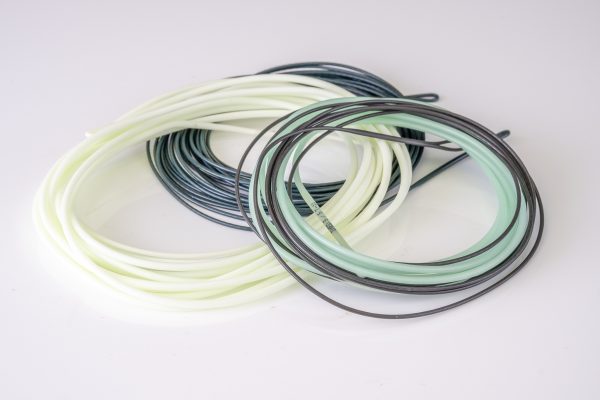
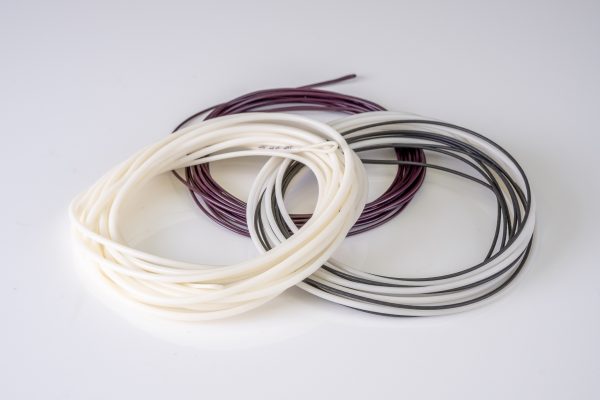
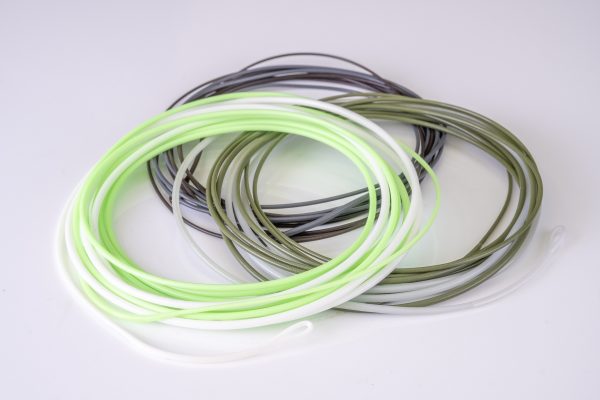
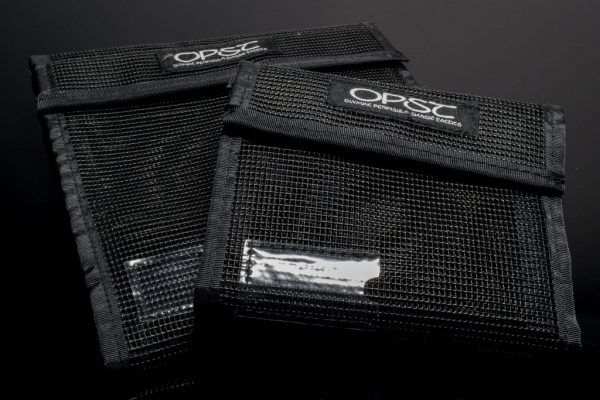
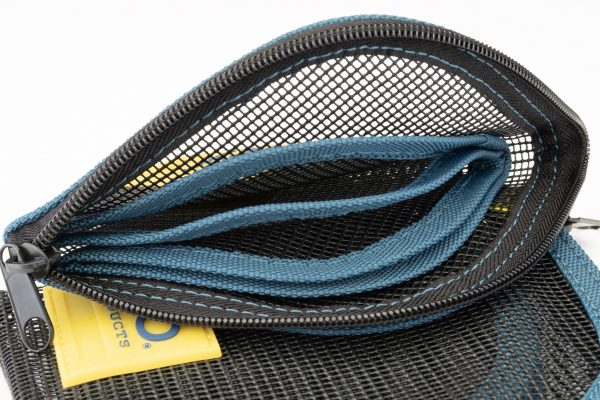
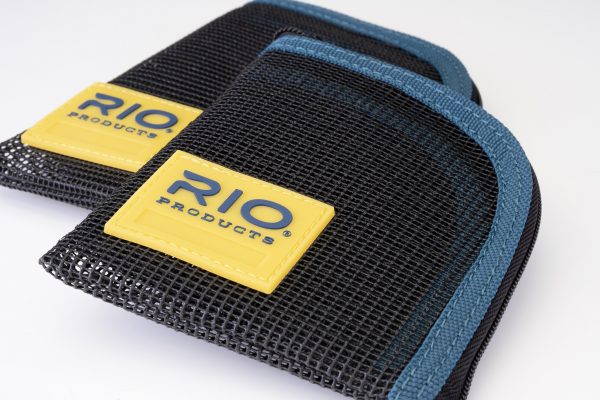
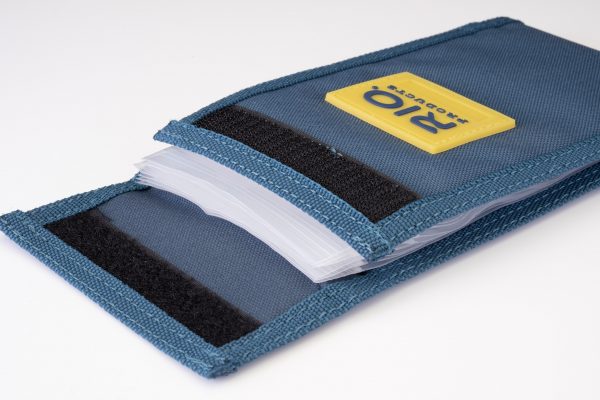
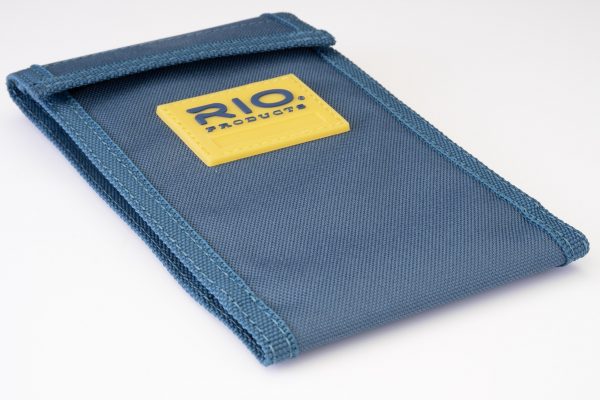
I gotta admit, even being an AirFlo-Guy, they’re falling short on the Skagit side of the Trout Spey World. This Skagit Scout Head is sort of a Hybrid with its 6ft. Front Taper, and the starting Grain weight at a whopping 400gr., perhaps just to much for a 2 or 3 wt. Trout Spey Rod – especially when adding those sink tips! Glad you mentioned the Fall/Winter use of the Scandi with Intermediate tips . . . was starting to wonder IF my AirFlo Switch Float Line (ScandI Head+running line) would be the wrong way to go? Got a lot of Practice Testing of my new rod & lines before the clinic, including my AirFlo BEACH (intermediate head+running line). The Beach works Great on my old Sage 7100-VXP with single hand spey techniques (nothing fancy). But the grain weight is right in the ball park (that’s for Mark) with my ONE 3wt. (210-240).(?) Think I’ll see how IT works on the 3wt in “full Spey mode”! Looks like I may bring 2 older reels re-spooled, one with the 240gr. Switch Float & the 6wt. BEACH @230gr.! My dedicated (new) Sage Trout Spey reel has the 210gr. AirFlo Switch Float (Scandi style) line. Gonna be a busy September, but a FUN one at that – testing, learning, practicing . . . may catch & release a few too . . . ! ? . Good Times, see ya at the “Show”!
As a gear nerd, I love that you guys do this post every year!
Thanks Chris. Yeah John puts them together annually and we all love them! Appreciate the feedback! You coming to Trout Spey Camp?